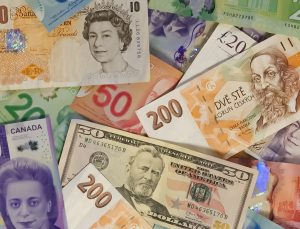Forex, or foreign exchange trading, is the buying and selling of currencies to make a profit. The forex market is the largest financial market in the world, with an average daily trading volume of around $5 trillion. For traders to participate in this market, they need to work with a broker.
A forex broker is a company or an individual that provides access to the forex market for traders. Brokers act as intermediaries between the trader and the market, executing trades on behalf of the trader and providing other services such as market analysis, education, and customer support.
Here are some of the primary functions of forex brokers:
1. Providing access to the forex market
Forex brokers provide traders with the software, tools, and platforms needed to access the forex market. This includes online trading platforms, mobile apps, and other trading tools that allow traders to buy and sell currencies in real-time.
2. Executing trades
Forex brokers execute trades on behalf of the trader. This means that when a trader places an order, the broker will execute the trade in the market. Brokers also provide access to different types of orders, such as limit orders, stop-loss orders, and take-profit orders, which allow traders to manage their risk and maximize their profits.
3. Providing market analysis and education
Many forex brokers provide market analysis and education to their clients. This can include daily market updates, analysis of currency pairs, and educational resources such as webinars and tutorials. This information can help traders make informed decisions and improve their trading skills.
4. Offering leverage
Forex brokers offer leverage, which allows traders to control larger positions with a smaller amount of capital. Leverage can increase the potential profits of a trade, but it also increases the risk of losses. Brokers typically offer different levels of leverage, depending on the trader’s experience and risk tolerance.
5. Providing customer support
Forex brokers provide customer support to their clients. This can include technical support, assistance with account setup, and help with funding and withdrawing funds from the trading account. Brokers also provide support for trading-related issues, such as order execution and platform usage.
6. Charging fees and commissions
Forex brokers make money by charging fees and commissions on trades. This can include spreads, which are the difference between the bid and ask price of a currency pair, as well as commissions on trades. Some brokers also charge fees for account maintenance, withdrawals, and other services.
Choosing a forex broker
Choosing a forex broker is an important decision for any trader. There are many factors to consider when selecting a broker, including the broker’s reputation, regulatory compliance, trading platform, fees and commissions, customer support, and trading conditions such as spreads and leverage.
Traders should also consider the types of assets and trading instruments available through the broker, as well as the broker’s policies on order execution, slippage, and stop-loss orders.
Conclusion
Forex brokers play a critical role in the forex market, providing traders with access to the market, executing trades, providing market analysis and education, offering leverage, providing customer support, and charging fees and commissions. Traders should carefully consider the factors mentioned above when selecting a broker to ensure they have the best possible trading experience.






